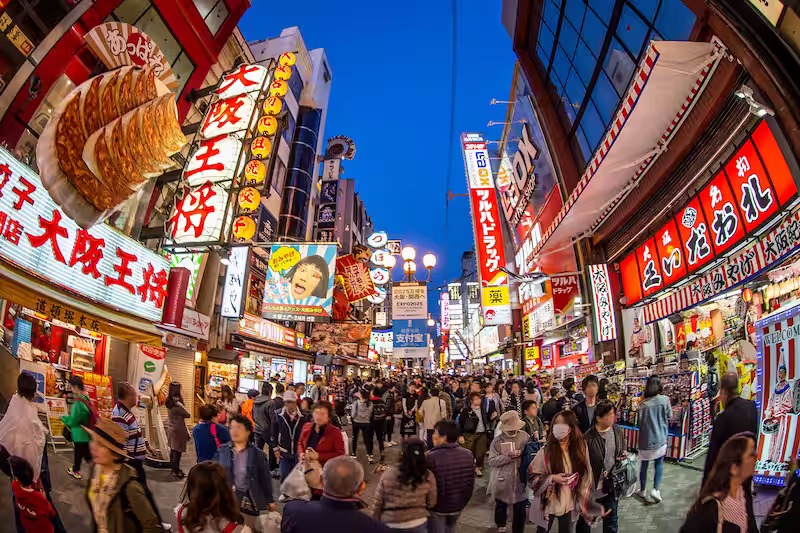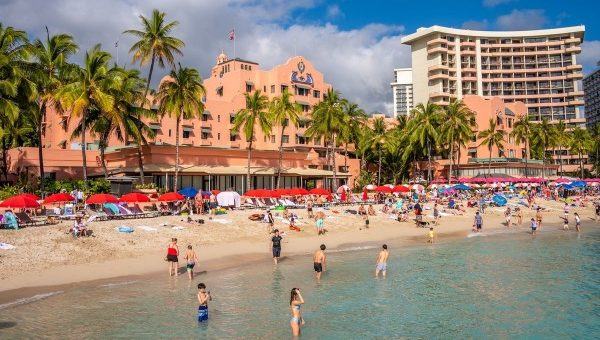The Specified Skilled Worker visa is a residence status introduced by the Japanese government in 2019. This system aims to address Japan's labor shortage by accepting foreign talent with specialized knowledge or skills.
Initially, the Specified Skilled Worker system covered 12 industries, but in March 2024, 4 additional industries were included, bringing the total to 16 industry sectors.
Japanese labor law stipulates that foreign workers with a Specified Skilled Worker visa must receive at least the minimum hourly wage, similar to Japanese workers. According to data from the Immigration Services Agency, the average monthly salary across all industries in 2024 is approximately 211,200 yen, with specific salaries varying by region, industry, and other factors.
Currently, the total number of foreigners holding Specified Skilled Worker visas in Japan is 284,466. The overall average age is relatively young, making the employment of young and energetic foreigners a significant boost for Japanese companies facing labor shortages.
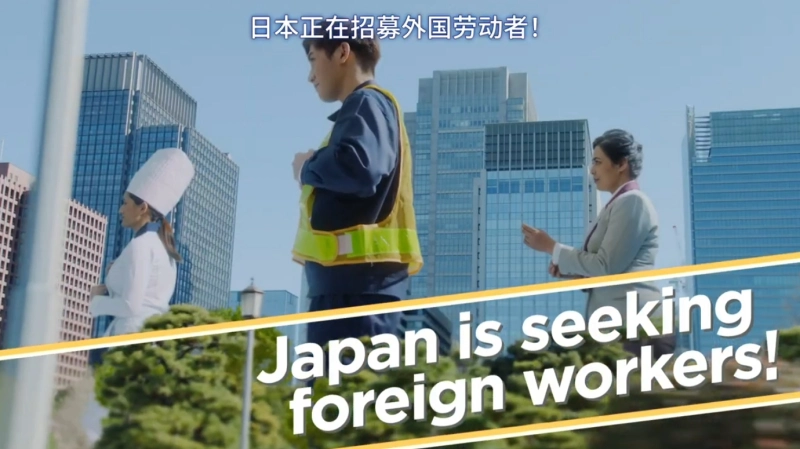
1. Which Fields Are Included in the Specified Skilled Worker Program?
① Nursing Care
② Building Cleaning
③ Industrial Product Manufacturing
④ Construction
⑤ Shipbuilding and Marine Industry
⑥ Automobile Maintenance and Repair
⑦ Aviation
⑧ Accommodation Services
⑨ Agriculture
⑩ Fisheries
⑪ Food and Beverage Manufacturing
⑫ Restaurant Industry
⑬ Automobile Transportation
⑭ Forestry
⑮ Timber Industry
⑯ Railways
The Specified Skilled Worker system is divided into Type 1 and Type 2, with Type 2 requiring a higher level of knowledge and advanced skills.
2. What Is the Difference Between Specified Skilled Worker Type 1 and Type 2?
Specified Skilled Worker Type 1 and Type 2 differ in terms of residence duration, skill level, and other factors. Below are the differences:
【Specified Skilled Worker Type 1】
- Residence Duration: Renewable every 1 year, 6 months, or 4 months, up to a maximum of 5 years, with the possibility to transition to Type 2
- Japanese Language Proficiency: Japanese Language Proficiency Test (JLPT) N4 level or Japan Foundation Test for Basic Japanese (JFT-Basic) A2 level
- Skills Test: Required
- Job Change: Allowed
- Family Accompaniment: Not allowed
【Specified Skilled Worker Type 2】
- Residence Duration: Renewable every 3 years, 1 year, or 6 months, with no renewal limit
- Japanese Language Proficiency: Not required
- Skills Test: Required
- Job Change: Allowed
- Family Accompaniment: Allowed
- Permanent Residency Application: Eligible if conditions are met
Specified Skilled Worker Type 2 is a progression from Type 1, allowing long-term employment and the possibility of applying for permanent residency if conditions are met. (The duration of Type 1 does not count toward the 5 years of work required for permanent residency but does count toward the 10 years of continuous residence.)
2. Wages and Income for Specified Skilled Workers
The Ministry of Health, Labour and Welfare has published wage statistics for foreign workers by residence status. According to the 2024 (Reiwa 6) report, the average monthly salary for Specified Skilled Workers is 211,200 yen.
| Residence Status Category | Average Monthly Salary | Year-on-Year Change Rate | Average Age | Average Years of Service |
| Total Foreign Workers | 242,700 yen | 4.3% | 32.8 years | 3.2 years |
| Professional/Technical Fields (Excluding Specified Skilled) | 292,000 yen | -1.6% | 32.4 years | 3.0 years |
| Specified Skilled Worker | 211,200 yen | 6.7% | 28.8 years | 2.4 years |
| Status-Based Residence | 300,300 yen | 13.4% | 45.3 years | 5.7 years |
| Technical Intern Training | 182,700 yen | 0.6% | 27 years | 1.7 years |
| Others (Excluding Specified Activities and Study Abroad) | 226,500 yen | -2.1% | 30 years | 2.5 years |
Below is the average monthly salary statistics for each Specified Skilled Worker industry (2021 data):
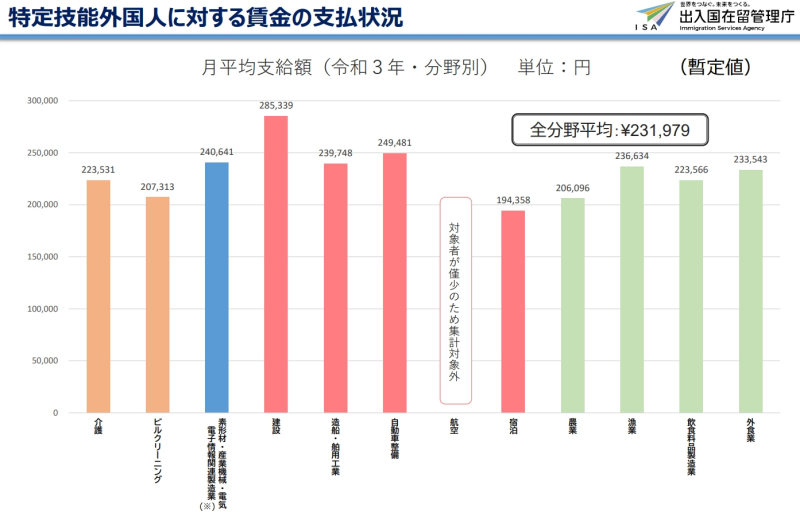
Nursing Care: 223,531 yen
Building Cleaning: 207,313 yen
Industrial Product Manufacturing: 240,641 yen
Construction: 285,339 yen
Shipbuilding and Marine Industry: 239,748 yen
Automobile Maintenance and Repair: 249,481 yen
Aviation: Fewer than 10 people, so not statistically reported
Accommodation Services: 194,358 yen
Agriculture: 206,096 yen
Fisheries: 236,634 yen
Food and Beverage Manufacturing: 223,566 yen
Restaurant Industry: 233,543 yen
Automobile Transportation: No data available
Forestry: No data available
Timber Industry: No data available
Railways: No data available
3. Overtime, Holiday, and Night Shift Allowances for Specified Skilled Workers
In addition to basic wages, overtime, holiday, and night shift work require additional allowances. These allowance standards are stipulated by the Labor Standards Act and apply to all workers, regardless of nationality or employment type.
Therefore, Specified Skilled Workers must also receive the corresponding additional wages for overtime, holiday, or night shift work as required by law.
Allowance Calculation Standards
The allowance rates vary depending on the situation, as follows:
【Overtime Allowance (Excess Work/Overtime Pay)】
- Exceeding statutory working hours (8 hours/day, 40 hours/week): At least 25% additional pay
- Exceeding overtime limits (45 hours/month, 360 hours/year): At least 25% additional pay
- Monthly overtime exceeding 60 hours: At least 50% additional pay
【Holiday Work Allowance】
- Working on statutory rest days (at least 1 day/week): At least 35% additional pay
【Night Shift Allowance】
- Working between 22:00 and 05:00 the next day: At least 25% additional pay
Key Points for Additional Allowances
- All overtime, holiday, and night shift work must receive additional pay, with no exemptions allowed.
- Specified Skilled Workers are subject to the same labor law regulations as Japanese employees, and companies must strictly comply.
- If an employer fails to pay statutory additional wages, workers can file a complaint with the Labor Standards Inspection Office.
4. What Taxes and Fees Are Deducted from Specified Skilled Worker Wages?
When receiving wages, always check whether the deducted taxes and fees are correct. Typically, the following fees can be deducted from your wages:
- Income Tax
- Resident Tax
- Withholding Tax
- Social Insurance Fees, including Health Insurance, Welfare Pension Insurance, and Employment Insurance
Other fees are not allowed to be deducted, but if you wish to deduct fees other than those listed above, a labor-management agreement can be signed to allow such deductions.
5. Overview of Job Content and Employment Status for the 16 Specified Skilled Worker Industries
Since April 2022, the Industrial Product Manufacturing sector has been consolidated to include three sub-sectors (Basic Materials Industry, Industrial Machinery Manufacturing, and Electrical/Electronic Equipment Assembly). Later, Automobile Transportation, Railways, Forestry, and Timber Industries were added, resulting in a total of 16 industries.
Evaluation exams for all Specified Skilled Worker sectors are available in Japan, but the availability of overseas test centers varies by industry.
Currently, "Nursing Care," "Automobile Transportation," "Railways," "Forestry," and "Timber Industry" are limited to Specified Skilled Worker Type 1. Below is an overview and current status of the 16 sectors.
① Nursing Care (介護)

The Specified Skilled Worker "Nursing Care" involves duties related to nursing care, serving as a caregiver or nursing assistant, including physical care such as bathing and feeding assistance, as well as related support services.
Currently, home nursing care services are not permitted. However, due to a severe shortage of home nursing care workers, the Japanese government is discussing the possibility of allowing this in the future.
The "Nursing Care" exam is available not only in Japan but also in 12 countries overseas, including the Philippines.
Corresponding Residence Status: Specified Skilled Worker Type 1
"Nursing Care" Specified Skilled Worker Type 1: 45,836 people (January 2025)
② Building Cleaning (ビルクリーニング)

The Specified Skilled Worker "Building Cleaning" involves cleaning the interior of buildings to maintain aesthetics and ensure safety. Workers select appropriate cleaning agents and tools based on the location, area, building material type, and degree of dirt, requiring specialized knowledge.
The building cleaning industry has fewer workers compared to other sectors. However, the industry faces recruitment challenges nationwide in Japan. According to the Ministry of Health, Labour and Welfare, in 2022, the effective job opening-to-applicant ratio for building and cleaning workers was highest in the Hokuriku region at 3.76 and lowest in the South Kanto region at 2.04.
Although the cleaning industry is developing robots to improve efficiency, raising wages, and promoting the employment of women and the elderly, the labor shortage persists.
To obtain Specified Skilled Worker Type 1 qualification, candidates must pass the Building Cleaning Skills Evaluation Test. The Type 1 exam is conducted in Japan and five countries, including Indonesia. For the Type 2 exam, candidates must provide documentation proving at least two years of on-site management experience, and the application must be submitted by the employing company, not the individual.
Corresponding Residence Status: Specified Skilled Worker Type 1, Type 2
"Building Cleaning" Specified Skilled Worker Type 1: 6,248 people (January 2025)
"Building Cleaning" Specified Skilled Worker Type 2: 4 people (January 2025)
③ Industrial Product Manufacturing (工業製品製造業)
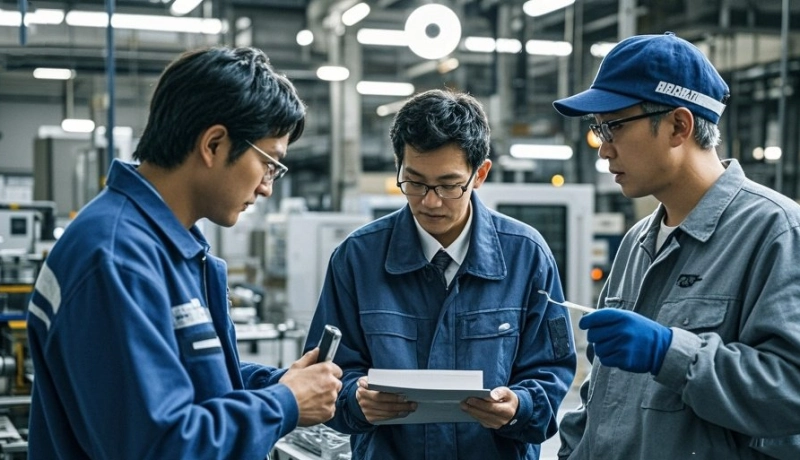
The Industrial Product Manufacturing sector was originally divided into three sub-sectors: Basic Materials Industry, Industrial Machinery Manufacturing, and Electrical, Electronic, and Information-Related Industries, but these were merged in 2022.
The average wage in Industrial Product Manufacturing is the third highest, following "Construction" and "Automobile Maintenance and Repair," making it a popular industry for Specified Skilled Workers. It is particularly popular in urban areas like Tokyo and Nagoya, with companies offering paid leave and bonuses being more attractive to foreign workers.
This industry accounts for approximately 15.9% of all Specified Skilled Workers, and it is appealing because it can be pursued without experience or high Japanese proficiency.
Additionally, the Japanese government estimates that the "Industrial Product Manufacturing" sector will absorb 173,300 foreigners from 2025 to 2028, with further expansion expected in the future.
Corresponding Residence Status: Specified Skilled Worker Type 1, Type 2
"Industrial Product Manufacturing" Specified Skilled Worker Type 1: 45,181 people (January 2025)
"Industrial Product Manufacturing" Specified Skilled Worker Type 2: 122 people (January 2025)
④ Construction (建設)
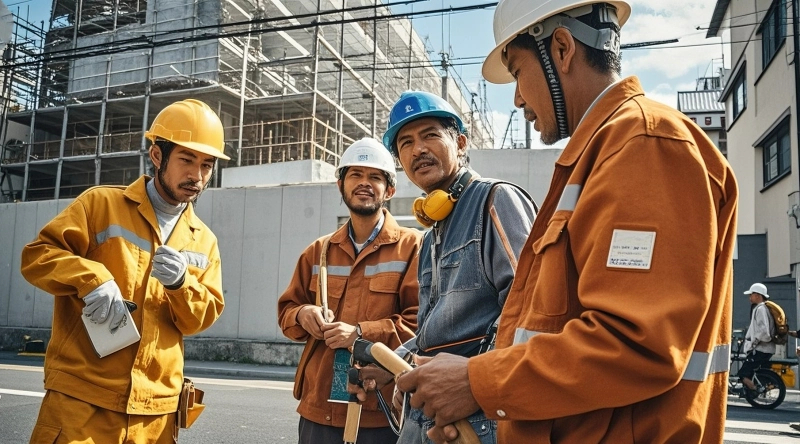
The Specified Skilled Worker "Construction" involves all types of construction-related work, including plastering, scaffolding, carpentry, and lifeline installation, with a wide range of tasks.
In April 2022, a Chinese man in Gifu Prefecture became the first person in Japan to obtain Specified Skilled Worker Type 2 status in the construction sector. To achieve this certification, candidates must pass a skills test, achieve a silver rating in the Construction Career Up System, and have on-site management experience.
The construction industry is divided into 19 job types (18 exam categories), but under the Specified Skilled Worker system, all construction-related job types, including those for technical interns, have been reorganized into three job types.
The three business categories are as follows:
◆ Business Category: Civil Engineering
◆ Business Category: Construction
◆ Business Category: Infrastructure and Equipment
There are 39,253 foreigners with Specified Skilled Worker Type 1 in the construction industry, accounting for 13.6% of the total and ranking fourth among the 12 industries. This is due to many technical interns passing exams and transitioning to Specified Skilled Worker status in construction, as well as the relatively high income in this sector.
The most active field for foreigners with Specified Skilled Worker status in construction is "Civil Engineering."
Corresponding Residence Status: Specified Skilled Worker Type 1, Type 2
"Construction" Specified Skilled Worker Type 1: 39,253 people (January 2025)
"Construction" Specified Skilled Worker Type 2: 241 people (January 2025)
⑤ Shipbuilding and Marine Industry (造船・舶用工業)

The Specified Skilled Worker "Shipbuilding and Marine Industry" involves welding, painting, ironwork, finishing, machining, and electrical equipment assembly for ships and vessels.
More than half of the foreigners in this sector are engaged in "welding," which has a particularly high demand for foreign workers.
The Type 1 skills evaluation exam is conducted not only in Japan but also in overseas countries like the Philippines. The Type 2 skills exam is only conducted for the "welding category." To obtain Type 2 status, candidates need at least two years of supervisory experience in the shipbuilding or marine industry.
Corresponding Residence Status: Specified Skilled Worker Type 1, Type 2
"Shipbuilding and Marine Industry" Specified Skilled Worker Type 1: 9,809 people (January 2025)
"Shipbuilding and Marine Industry" Specified Skilled Worker Type 2: 83 people (January 2025)
⑥ Automobile Maintenance and Repair (自動車整備業)

The Specified Skilled Worker "Automobile Maintenance and Repair" involves vehicle inspection and maintenance tasks, as well as a wide range of related work. Core duties include daily maintenance, periodic maintenance, and major repairs. Additional duties include explaining maintenance details, selling related parts, painting vehicle bodies and chassis, washing cars, and cleaning interiors.
Note that vehicle assembly work is classified under the "Manufacturing" sector, distinct from automobile maintenance. The number of foreigners in the automobile maintenance sector is relatively low compared to other industries.
The skills evaluation exam for Specified Skilled Worker Type 1 "Automobile Maintenance and Repair" is available overseas only in the Philippines and Vietnam.
Corresponding Residence Status: Specified Skilled Worker Type 1, Type 2
"Automobile Maintenance and Repair" Specified Skilled Worker Type 1: 3,123 people (January 2025)
"Automobile Maintenance and Repair" Specified Skilled Worker Type 2: 11 people (January 2025)
⑦ Aviation (航空)
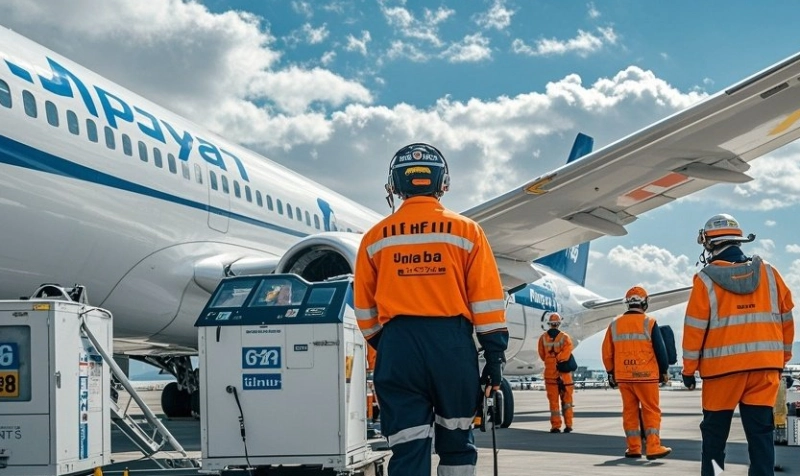
The Specified Skilled Worker "Aviation" sector has two categories: "Airport Ground Handling" (guiding and moving aircraft to parking positions, handling luggage and cargo, cleaning and maintaining aircraft interiors and exteriors) and "Aircraft Maintenance and Repair" (aircraft maintenance, large-scale periodic maintenance).
Currently, the majority of Specified Skilled Workers in the aviation sector are in "Airport Ground Handling" (953 people), while "Aircraft Maintenance" has only 6 people.
The Type 1 exam for "Aviation" is conducted less frequently than in other sectors, with overseas test centers in the Philippines, Indonesia, Nepal, Mongolia, and Sri Lanka.
Additionally, as no eligible candidates have applied, the Type 2 exam has not yet been conducted.
Corresponding Residence Status: Specified Skilled Worker Type 1, Type 2
"Aviation" Specified Skilled Worker Type 1: 1,496 people (January 2025)
"Aviation" Specified Skilled Worker Type 2: None
⑧ Accommodation Services (宿泊)

The Specified Skilled Worker "Accommodation Services" involves work related to accommodation facilities, including front desk operations, planning and public relations, customer service, and restaurant services.
The number of foreigners with Specified Skilled Worker visas in the "Accommodation Services" category is relatively low among the 16 categories, primarily due to lower income. Additionally, many foreigners working in hotels hold different residence statuses, such as "Engineer/Specialist in Humanities/International Services."
The Type 2 skills exam requires at least two years of experience in multiple roles, including front desk, planning, public relations, customer service, and restaurant services. As a result, few people take the Type 2 exam.
Corresponding Residence Status: Specified Skilled Worker Type 1, Type 2
"Accommodation Services" Specified Skilled Worker Type 1: 717 people (January 2025)
"Accommodation Services" Specified Skilled Worker Type 2: 7 people (January 2025)
⑨ Agriculture (農業)
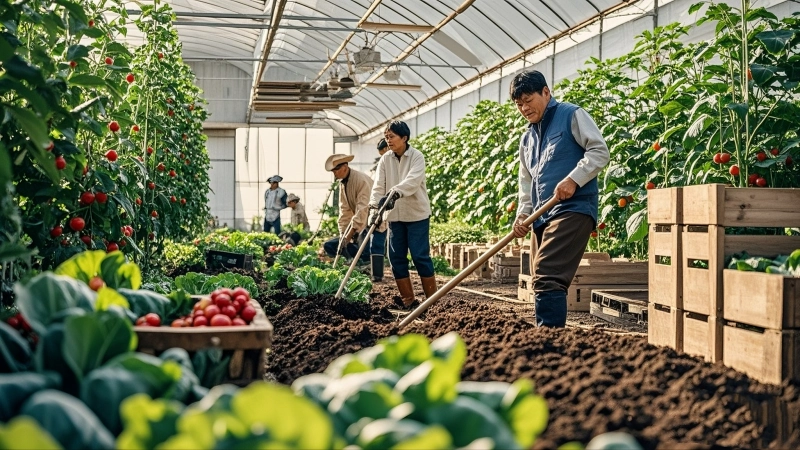
The Specified Skilled Worker "Agriculture" sector is divided into two categories: "Crop Farming" and "Livestock Farming."
Crop Farming includes the cultivation of "greenhouse horticulture," "field crops and vegetables," and "fruit trees," as well as work centered on crop cultivation. Livestock Farming includes pig farming, poultry farming, and dairy farming, involving livestock rearing and dairy product production.
Additionally, this sector allows work related to the manufacturing, processing, transportation, and sale of agricultural and livestock products, as well as auxiliary tasks like snow removal in winter. The variety of tasks requires multiple skills.
"Crop Farming" and "Livestock Farming" have separate exams, and you can only work in the category you pass. To work in both, you must pass both exams.
One unique advantage of the "Agriculture" sector is that it allows temporary employment, a feature not available in other industries, accommodating the diverse employment needs of Japanese companies and individuals.
The number of foreigners with Specified Skilled Worker status in "Agriculture" is 29,331, accounting for 10.3% of the total and ranking fifth among the 16 sectors. Agriculture has long been a popular sector for technical interns, making it more convenient for recruiting and employing foreign workers compared to other sectors.
The Type 1 exam for "Agriculture" is held in 12 countries overseas, facilitating participation for foreigners. While individuals can apply for the Type 1 exam, the required documents must be prepared and submitted by the accepting company.
Corresponding Residence Status: Specified Skilled Worker Type 1, Type 2
"Agriculture" Specified Skilled Worker Type 1: 29,184 people (January 2025)
"Agriculture" Specified Skilled Worker Type 2: 222 people (January 2025)
⑩ Fisheries (漁業)
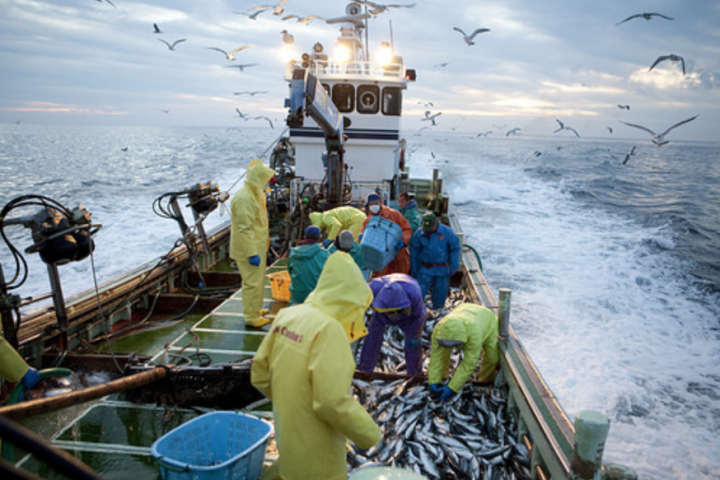
The Fisheries sector is divided into two categories: "Fishing" and "Aquaculture," each with different exam content. Like agriculture, fisheries has peak and off-seasons, so this industry is allowed to dispatch Specified Skilled Workers.
Currently, the number of foreigners with Specified Skilled Worker status in Fisheries is relatively low, with many transitioning from technical intern status to Specified Skilled Worker status.
The application requirement for Specified Skilled Worker Type 2 in Fisheries is Japanese Language Proficiency Test N3 or higher. Therefore, a certain level of Japanese proficiency is required to work in this sector.
Corresponding Residence Status: Specified Skilled Worker Type 1, Type 2
"Fisheries" Specified Skilled Worker Type 1: 3,514 people (January 2025)
"Fisheries" Specified Skilled Worker Type 2: 4 people (January 2025)
⑪ Food and Beverage Manufacturing (飲食料品製造業)
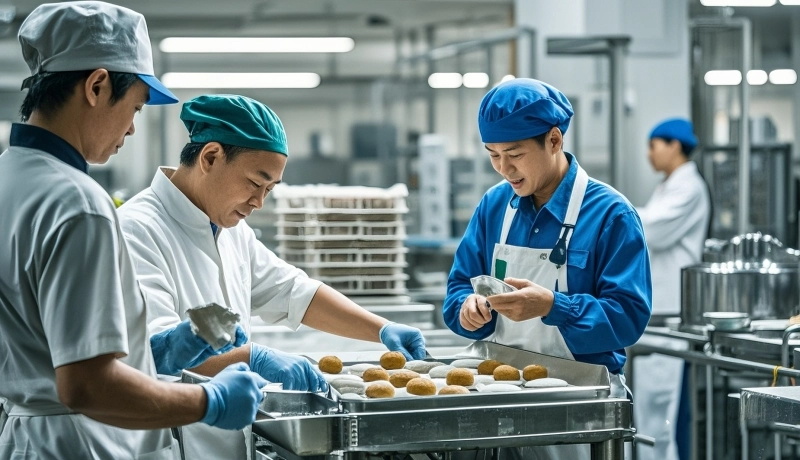
Specified Skilled Workers in the Food and Beverage Manufacturing sector can engage in various stages of food and beverage production, including manufacturing, processing, and safety and hygiene management of food and beverages (excluding alcoholic beverages). This sector has the highest number of Specified Skilled Workers.
The Food and Beverage Manufacturing sector covers seven business categories:
- Food Manufacturing
- Soft Drink Manufacturing
- Tea and Coffee Manufacturing (excluding soft drinks)
- Ice Manufacturing
- General Supermarkets (limited to food manufacturing)
- Food Supermarkets (limited to food production companies)
- Confectionery Retail, Bread Retail, Tofu, Fish Cakes, and Other Processed Food Retail (limited to manufacturing and retail)
Previously, supermarkets were not allowed to employ workers under this program, but in March 2024, the Japanese Cabinet revised the "Additional Standards Notification," including back-end operations (limited to food manufacturing) in general and food supermarkets, further expanding employment opportunities in the Food and Beverage Manufacturing sector.
Due to high demand in food manufacturing, the number of foreigners with Specified Skilled Worker status in "Food and Beverage Manufacturing" reaches 74,523, the highest among all 16 sectors. In the past, many transitioned from technical interns to Specified Skilled Workers, but now more foreigners are obtaining Specified Skilled Worker status directly after passing exams.
The Type 2 exam can only be applied for by companies, not individuals. To take the exam, candidates must have at least two years of experience in the food and beverage manufacturing industry, supervising multiple workers and managing processes.
Corresponding Residence Status: Specified Skilled Worker Type 1, Type 2
"Food and Beverage Manufacturing" Specified Skilled Worker Type 1: 74,523 people (January 2025)
"Food and Beverage Manufacturing" Specified Skilled Worker Type 2: 219 people (January 2025)
⑫ Restaurant Industry (外食業)

Foreigners with Specified Skilled Worker status in the Restaurant Industry can engage in various restaurant-related tasks, such as preparing food and beverages, store management, and customer service. In addition to working as floor staff in restaurants, they can also serve as catering staff or service personnel in hotel restaurants.
The number of Specified Skilled Workers in the Restaurant Industry ranks sixth among the 16 sectors. With the steady increase in foreign tourists to Japan, the demand for service industry workers is also growing.
The Type 2 exam application must be submitted by the company, not the individual. Additionally, applying for Type 2 residence status requires Japanese Language Proficiency Test N3 or higher, making this sector more demanding in terms of Japanese proficiency compared to others.
Corresponding Residence Status: Specified Skilled Worker Type 1, Type 2
"Restaurant Industry" Specified Skilled Worker Type 1: 28,995 people (January 2025)
"Restaurant Industry" Specified Skilled Worker Type 2: 134 people (January 2025)
⑬ Automobile Transportation (自動車運送業)

The Automobile Transportation sector, newly added in 2024, covers tasks such as driving trucks, taxis, and buses to transport passengers and goods.
To apply for Specified Skilled Worker status in Automobile Transportation, you need a driver’s license appropriate for the job. In Japan, bus and taxi drivers must hold a Class 2 driver’s license, while truck drivers require a Class 1 driver’s license.
Since communication with customers is crucial for taxi and bus drivers, workers are required to have at least N3-level Japanese proficiency.
The CTB exam (Transportation Industry Specified Skills Exam) is now available, and it is estimated that the transportation industry will absorb 24,500 workers over the next five years. With improvements in driver’s license exams and support systems, the number of foreign workers is expected to increase.
Corresponding Residence Status: Specified Skilled Worker Type 1
"Automobile Transportation" Specified Skilled Worker Type 1: None
⑭ Forestry (林業)
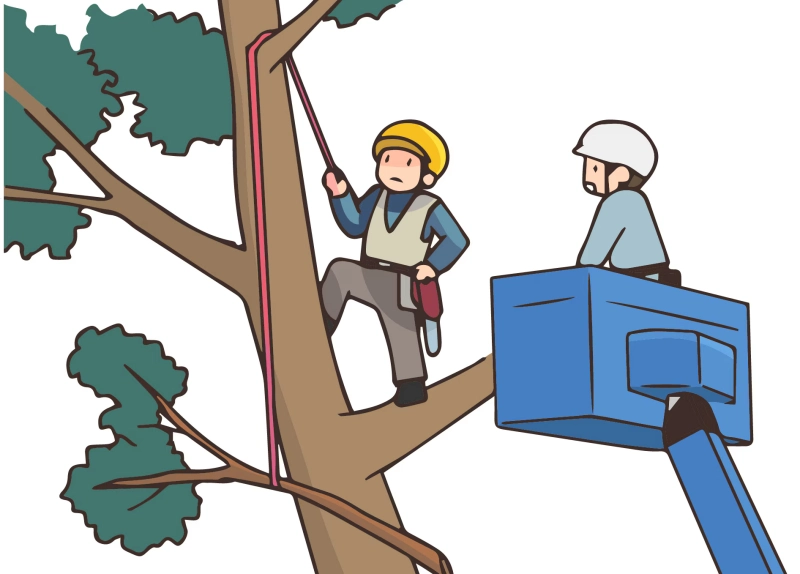
Specified Skilled Workers in the Forestry sector engage in afforestation, material production, nurturing forestry seeds and seedlings, charcoal production including log production, and related tasks.
Skills exams for the Forestry sector began in 2025. The sector is expected to accept 1,000 workers over five years to address Japan’s labor shortage in forestry.
Corresponding Residence Status: Specified Skilled Worker Type 1
"Forestry" Specified Skilled Worker Type 1: None
⑮ Timber Industry (木材産業)

The Timber Industry Specified Skilled Worker status allows workers to engage in timber processing and related tasks in the timber industry, plywood manufacturing, and other related fields.
The first skills exam for the Timber Industry was held in December 2024, and all 20 candidates passed, achieving a very high pass rate.
It is expected that 1,000 workers will be admitted over the next five years, attracting more foreign workers to the industry.
Corresponding Residence Status: Specified Skilled Worker Type 1
"Timber Industry" Specified Skilled Worker Type 1: 20 people
⑯ Railways (鉄道)
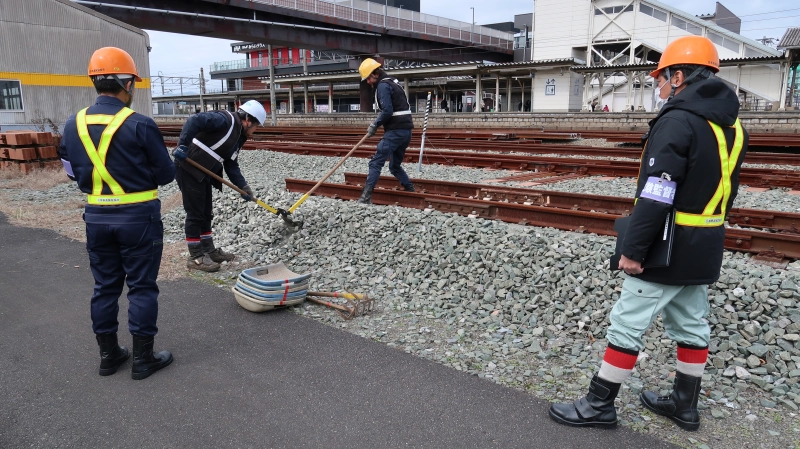
Railways is a new Specified Skilled Worker sector, involving track maintenance, electrical equipment maintenance, vehicle repair, vehicle manufacturing, and transportation personnel work.
As transportation workers responsible for passenger service and safety management, Japanese proficiency is critical for foreigners in the railway industry, requiring Japanese Language Proficiency Test (JLPT) N3 or higher.
The first skills evaluation exam for the Railway sector was held in March 2025. The Japanese government estimates that the industry will absorb 3,800 workers over five years to alleviate labor shortages in the railway sector.
Corresponding Residence Status: Specified Skilled Worker Type 1
"Railways" Specified Skilled Worker Type 1: 3 people
6. Websites for Specified Skilled Worker Information and Exam Details
Japan Ministry of Foreign Affairs on the Specified Skilled Worker System:
https://www.mofa.go.jp/mofaj/ca/fna/ssw/us/
Japan Immigration Services Agency Information on Specified Skilled Worker Sectors:
https://www.moj.go.jp/isa/policies/ssw/sswfield.html
Overview of JFT Japanese Language Exam and Specified Skilled Worker Sector Evaluation Exams:
https://www.prometric-jp.com/ssw/test_list/
Schedule for JFT Japanese Language Exam and Specified Skilled Worker Sector Evaluation Exams:
https://www.prometric-jp.com/ssw/schedule/
Locations for JFT Japanese Language Exam and Specified Skilled Worker Sector Evaluation Exams:
https://www.prometric-jp.com/ssw/hall/
Japan Ministry of Health, Labour and Welfare Minimum Wage Inquiry:
https://saiteichingin.mhlw.go.jp/



